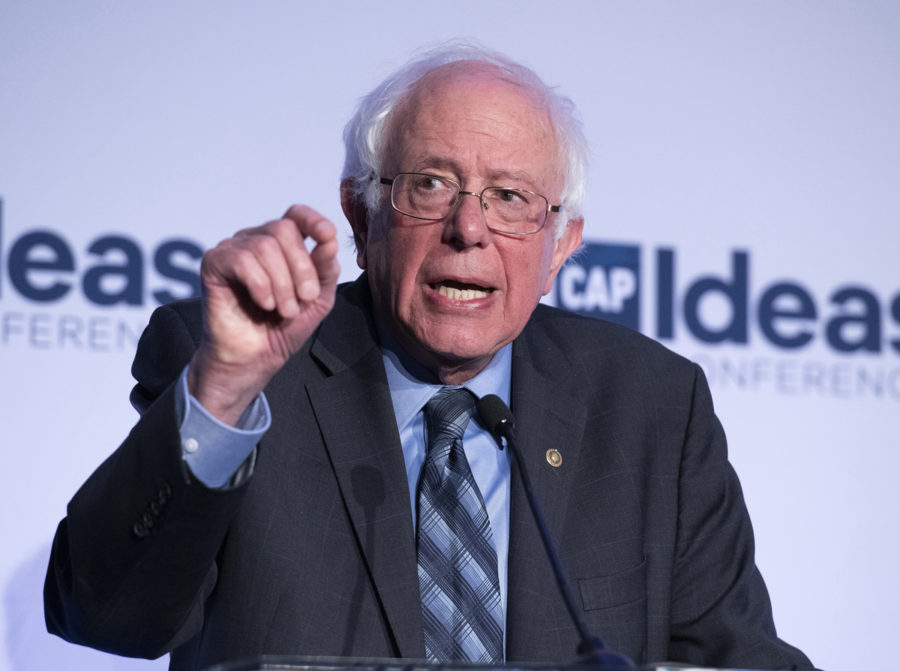Editorial: Eliminating superdelegates is the best policy for democrats
U.S. Sen. Bernie Sanders makes remarks at the Center for American Progress’ 2018 Ideas Conference on Tuesday, May 15, at the Renaissance Hotel in Washington, D.C. (Ron Sachs/CNP/Zuma Press/TNS)
August 29, 2018
The Democratic party became slightly more democratic this weekend. Through a package pushed by Democratic National Committee Chairman Tom Perez and allies of Vermont Sen. Bernie Sanders, the party voted to significantly reduce the power of superdelegates — party officials who have 4,000 times more voting power in primaries than the average registered Democrat.
The move — a response to the populist insurgency in the Democrat and Republican parties — is one that will certainly unite left-of-center voters at a time when the country’s political system is more polarized than ever.
According to Joshua Putnam, a political science professor at the University of Georgia, Democrat party leaders instituted superdelegates in 1982 to ensure that far-left-wing candidates didn’t make it to the general election. This came after Jimmy Carter, a staunch liberal, lost to Reagan in a landslide in 1980.
“The system, as it was constructed at the time — with no superdelegates — allowed for insurgent candidates to gather momentum early and win the nomination,” Putnam told The New York Times. “But those insurgent types of candidates were not necessarily well suited for the general election.”
But since superdelegates have never voted against the decisions of primary voters, granting special voting rights to party officials — including elected Democrats — never had any real influence on the election. And if Washington elites did have the audacity to vote against their base, they could throw the Democratic party into a hugely divisive state.
Superdelegates never helped Democrats elect a superior candidate — instead they’ve just undermined Democratic voters’ trust in their own party. This is exactly the sentiment Bernie Sanders voters — the populist contingent of the party — expressed in response to Hillary Clinton’s nomination in 2016.
“The superdelegate system is rigged to protect establishment politicians and shut down populism,” Spencer Thayer, a fervent Sanders supporter, said during primary season in 2016.
Even though Clinton would have won the Democratic primary without the help of superdelegates, their staunch commitment to voting for her appeared to doom any challenger from the beginning.
And while it is true that moderate candidates typically have a better chance of winning the presidency — they can draw votes from both sides of the aisle — Bernie Sanders was an exception to that rule in 2016. During the primary, he polled better than Clinton against all leading Republican candidates — including Donald Trump — yet over 90 percent of the DNC’s superdelegates voted for Clinton.
Donald Trump — a populist Republican candidate — proved that voters are shying away from traditional establishment-style politics.
So in order to have success in future presidential elections, Democrats need to remove establishment figures from power — and eliminating superdelegates is the most logical first step.



